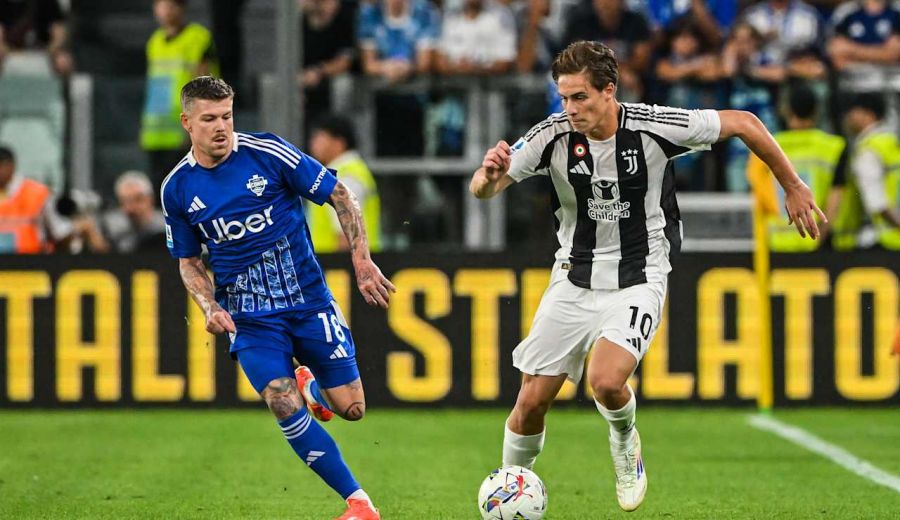Subtotal $0.00
Amorim under mounting pressure
Manchester United managerial contenders are watching Ruben Amorim’s situation closely as his position at Sporting CP comes under mounting pressure. The club’s decision-makers have begun a broad scan of potential successors, weighing a mix of proven winners and methodical rebuilders. The current stretch of results has intensified the scrutiny around Amorim, yet United are not rushing to a decision. Instead, they are assessing how a shift to a different footballing philosophy would align with the club’s long-term strategy, culture, and expected timelines. In this climate, the focus on Manchester United managerial contenders is as much about temperament and process as it is about results on the pitch.
Meanwhile, the discussions emphasize a preference for a plan that blends stability with a clear path to improvement. Amorim’s style—an emphasis on pressing, energetic football and compact organisation—appeals to some insiders, but the breadth of the job tomorrow demands a broader blueprint. United’s leadership knows that the next era requires more than short-term fixes; it requires a sustainable framework that can deliver consistent results, develop talent from within, and re-establish the club’s identity. As a result, Amorim’s position is under intense evaluation, and Manchester United managerial contenders are being compared for how they would deliver long-term value while safeguarding the club’s heritage. For context on Amorim’s profile, see ongoing coverage from reputable outlets such as BBC Sport.
Contenders in the frame: Southgate, Glasner, Carrick
The shortlist pivots on three names who bring distinct profiles to the table: Gareth Southgate, Oliver Glasner, and Michael Carrick. Southgate offers calm leadership and a track record of rebuilding squads under siege, assets that could translate into a patient, long-term project at United. Glasner is prized for his tactical organisation and his ability to extract steady progress from squads with financial constraints. Carrick, meanwhile, remains attractive due to his intimate club history, development-first approach, and the potential to bridge to a longer-term appointment if the interim period requires it. Each candidate presents a different pathway, but all are seen as fitting pieces of a broader strategic puzzle for Manchester United managerial contenders.
As the club weighs these options, the emphasis is on adaptability, cultural fit, and the ability to work within United’s current resource framework. Southgate could bring a steady hand and rebuilding ethos at scale, Glasner could institutionalise structure and discipline on a relative budget, and Carrick could offer continuity and a credible transition. The decision will ultimately reflect the club’s appetite for stability versus a ready-made catalyst. For broader coverage on Southgate and Glasner, refer to established outlets such as BBC Sport and ongoing reporting in major football outlets. Manchester United’s official site also remains a key reference point for any developing news.
Southgate: calm leadership and rebuilding experience
Gareth Southgate is widely recognised for his calm leadership and his capacity to rebuild teams under pressure. At international level, he has navigated a variety of challenging scenarios, turning setbacks into a blueprint for patient, culture-driven development. The appeal for United lies in the potential to implement a long-range plan that prioritises cohesiveness, structure, and gradual improvement rather than rapid, disruptive changes. Southgate’s experience of managing expectations and rebuilding morale could help stabilise a squad that has faced scrutiny from supporters and critics alike. Yet the shift from national team management to club football adds complexity, including daily training demands, transfer logistics, and the need to balance immediate results with a longer-term plan.
Supporters and insiders would need to assess whether Southgate’s strengths translate into the intensity and tempo of Manchester United’s environment. He would bring a credible leadership style, but the question remains whether he can adapt to club football’s immediate pressures and the expectation of rapid progress within a few transfer windows. For context on his approach, outlets such as BBC Sport have documented his management philosophy, while United’s own communications channels would gauge readiness for a sustained rebuild. This is a core aspect of the Manchester United managerial contenders discussion: can a calm leader sustain momentum across seasons?
Glasner: tactical organisation and consistency
Oliver Glasner represents a more technical, system-driven option. He is praised for building tactical organisation and achieving consistent performances even when resources are limited. Glasner’s teams tend to reflect a clear structure, pressing intensity, and a disciplined defensive base. For Manchester United, the appeal rests in the potential to implement a robust, repeatable framework that can be scaled as the squad evolves. His methodical approach would likely prioritise stability and gradual improvement, with a focus on making the best use of the current squad while continuing to develop younger players who fit his system. The challenge is whether Glasner can translate his successes in other leagues to a club of United’s size and global expectations.
Supporters will want to know how quickly Glasner can implement his ideas in a highly scrutinised environment, and how his adaptability would handle the pressures of elite competition, a demanding fanbase, and the need for immediate results at times. As with all candidates, the evaluation includes a careful assessment of fit with the club’s culture, recruitment strategy, and long-term vision. For additional context on Glasner’s coaching profile and recent performances, see coverage from major outlets and leave a note on the transfer market implications with expert commentary from industry sources.
Carrick: club history and potential interim option
Michael Carrick, a figure deeply embedded in Manchester United’s culture, remains a credible interim option and a potential bridge to a longer-term appointment. His intimate knowledge of the club’s values, academy setup, and playing style provides a tangible advantage in times of transition. Carrick’s growing coaching experience further strengthens his profile; he has demonstrated an aptitude for working with young players and instilling discipline while maintaining a positive atmosphere around the training ground. While some see him best suited for a temporary role, others argue that his familiarity with United’s ecosystem could accelerate a future, more comprehensive appointment if the timing is right.
As United weigh Carrick’s candidacy, the decision hinges on whether the club prioritizes a smoother, less disruptive transition or a longer-term rebuild under a high-profile manager. Carrick’s candidacy would also require a clear path to a sustainable future, ensuring that the interim period does not stall progress or undermine the club’s long-term strategy. For historical reference on Carrick’s time at United and his coaching trajectory, players and fans may consult detailed profiles on major sports portals and club communications. Additionally, his potential role might be framed within a broader plan that includes coaching development and a measured transfer strategy.
Stability vs immediate impact: the strategic crossroads
The central debate for Manchester United managerial contenders is whether to pursue stability and gradual rebuild or to pursue an instant-impact solution that could recalibrate the club’s trajectory in the short term. A stability-forward option would prioritise culture, development pipelines, and a clear, patient plan for growth. Conversely, an immediate-impact choice would aim to deliver tangible results quickly, potentially through a high-profile appointment who can win football matches and restore momentum in the short run. Each path has inherent risks: the former risks continued scrutiny and fan impatience, while the latter could require compromises on long-term culture and player development. The club’s decision makers must balance expectations, financial considerations, and the evolving football landscape as they navigate Manchester United managerial contenders.
Moreover, the timing of any decision matters. Delays could stall progress and heighten pressure on players and staff, while an abrupt switch could disrupt developing plans and complicate recruitment. The best option should align with the club’s broader strategic aims, including youth development, sustainability, and global branding. For readers seeking ongoing updates, the coverage from major outlets and the club’s own communications will continue to shape perceptions of what the next era at United might look like.
What the decision means for Manchester United’s future
Ultimately, the choice the club makes will reverberate beyond the current season. If Manchester United managerial contenders are steered toward stability and a gradual rebuild, the club could cultivate a resilient core capable of competing at the highest level over the next few years. If instead an established, high-profile name is brought in to deliver immediate results, the focus shifts to rapid transformation and a shorter-term plan that could redefine the squad’s identity and playing style. In either scenario, the decision will reflect United’s broader strategic aims, fan expectations, and the willingness to bet on a new era versus an established star. The implications stretch across recruitment, player development, and the club’s global brand as they pursue a path that sustains competitiveness and ambition for seasons to come.
As the club navigates this critical period, supporters should monitor official club communications and trusted outlets for clarity on timelines and criteria. The next steps will influence not only the squad’s dynamics but also the wider football ecosystem surrounding Manchester United, including partnerships, sponsorships, and fan engagement. In short, Manchester United managerial contenders are central to deciding the club’s direction, with implications that will be felt long after any single appointment has taken effect.











